Crescent Sustainability Initiatives
Affordable and Clean Energy (SDG 7)
community outreach plays a vital role in educating residents on the importance of these concepts, equipping them with the knowledge and tools necessary to reduce their energy consumption and transition towards cleaner energy sources. Through targeted programs, communities can foster a sense of responsibility and agency in addressing energy issues, ultimately leading to a more sustainable future.
One of the primary objectives of local outreach programs is to raise awareness about energy efficiency. This involves organizing workshops, seminars, and information sessions that highlight the benefits of energy-saving techniques. Participants learn about simple yet effective measures, such as using energy-efficient appliances, implementing smart thermostats, and embracing renewable energy solutions like solar panels. By demystifying these concepts and presenting them in an accessible manner, outreach initiatives empower community members to take actionable steps toward reducing their energy consumption.
Moreover, hands-on training and demonstrations are effective strategies for engaging residents and promoting energy efficiency. Programs can include home energy audits, where trained volunteers assist families in identifying energy-wasting practices and suggest improvements. Furthermore, community energy challenges can stimulate friendly competition among residents, encouraging them to adopt energy-saving habits while fostering a sense of camaraderie. These interactive approaches not only educate participants but also create a supportive environment that motivates individuals to make lasting changes.
Lastly, collaboration with local governments, non-profit organizations, and businesses is crucial for the success of outreach initiatives. By leveraging resources and expertise, these partnerships can enhance the scope and impact of energy efficiency programs. Providing incentives, such as rebates for energy-efficient appliances, or organizing community events that promote local clean energy projects can further encourage participation. Ultimately, local community outreach for energy efficiency serves as a foundation for cultivating informed, engaged citizens committed to creating a sustainable future for their neighborhoods and beyond.
Activities:
- A. The Crescent Energy Club’s Outreach Initiatives – “Energy 99 – An initiative to practice 9 Energy Mantras” – designed to reduce energy consumption and lower electricity costs
- B. Guest Lecture on “Sustainable Construction Technologies – A Way Forward” – Organized by Department of Civil Engineering
- Community Empowerment Through Tree Plantation Initiatives – “Green Tamil Nadu” – NSS, BSACIST jointly organized with the Government of Tamil Nadu
- “MeriLiFE – Massive Tree Plantation Drive 2023 – One Student – One Tree” jointly organized with All India Council for Technical Education (AICTE)
The Crescent Energy Club, as outlined in the magazine, is dedicated to fostering a culture of sustainability and energy efficiency within the local community. Through various initiatives and events, the club aims to educate residents about the significance of energy conservation and the adoption of clean energy practices. By engaging with the community, the club not only raises awareness but also empowers individuals to make informed choices that contribute to a sustainable future.
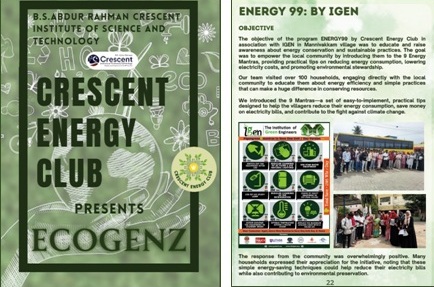
Figure VII (4.1) – 1 : Crescent Energy Club – ECOGENZ Magazine
Educational Programs and Initiatives
One of the key programs highlighted is the “Energy 99” initiative, which focuses on educating local households in Mannivakkam village about energy conservation. The club’s team visited over 100 homes, introducing residents to practical tips and the “9 Energy Mantras” designed to reduce energy consumption and lower electricity costs. This hands-on approach not only informs the community about energy efficiency but also encourages them to implement these practices in their daily lives, thereby fostering a sense of responsibility towards environmental stewardship.
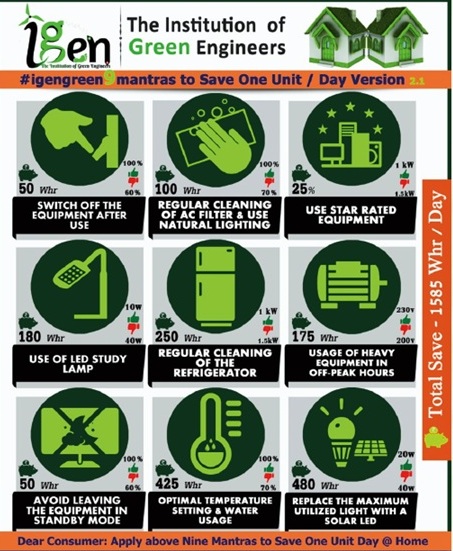
Figure VII (4.1) – 2 : Crescent Energy Club – 9 Energy Mantras designed to reduce energy consumption and lower electricity costs
Community Engagement and Participation
The club’s outreach efforts extend beyond mere education; they actively involve community members in various activities. This interactive approach not only raises awareness but also builds a network of individuals committed to environmental conservation, demonstrating the club’s dedication to creating a collaborative community focused on energy efficiency.
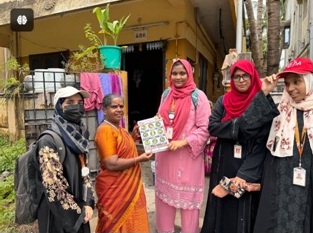
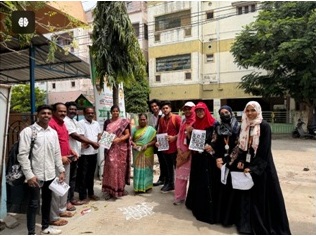
Figure VII (4.1) – 3 : Crescent Energy Club – 9 Energy Mantras – Distribution of posters – Creating a collaborative community focused on energy efficiency
Impact and Future Directions
The outcomes of these outreach programs are significant, as they lead to increased knowledge and awareness of clean energy practices among community members. The Crescent Energy Club’s initiatives have inspired many to adopt energy-efficient habits, contributing to a broader movement towards sustainability. Looking ahead, the club plans to continue its efforts by organizing more educational events and workshops, ensuring that the local community remains engaged and informed about the importance of energy efficiency and clean energy solutions. Through these ongoing initiatives, the Crescent Energy Club aims to create lasting change and promote a culture of sustainability within the community.
B.S. Abdur Rahman Crescent Institute of Science and Technology demonstrates a robust approach to local community outreach for energy efficiency through strategic educational initiatives. The institute organized a significant guest lecture on “Sustainable Construction Technologies – A Way Forward” delivered by Dr. Shweta Goyal from Thapar Institute of Engineering & Technology, highlighting the critical importance of sustainable development and energy-efficient practices. This event exemplifies the institution’s commitment to spreading awareness about environmental conservation and innovative construction methodologies that minimize carbon emissions.
The lecture comprehensively addressed key sustainability challenges, emphasizing the concept of zero carbon and zero waste through practical strategies like reduce, reuse, and recycle. Dr. Goyal elaborated on critical aspects of carbon emission reduction, including the importance of energy-efficient infrastructure, utilization of low-carbon alternatives, material reuse, and waste minimization. By introducing advanced concepts such as Life Cycle Assessment (LCA) and highlighting emerging technologies like fiber-reinforced concrete and 3D printed buildings, the program provided local community members with cutting-edge insights into sustainable construction practices and their environmental implications.
The outreach program’s primary objective was to educate participants about sustainable development that meets present needs without compromising future generations’ capabilities. By focusing on practical solutions and innovative technologies, the institute created an interactive platform for knowledge dissemination, encouraging community members to understand and adopt energy-efficient practices. The lecture not only shared theoretical knowledge but also provided actionable strategies for reducing carbon emissions, thereby empowering local residents to contribute meaningfully to environmental conservation and sustainable urban development.

Figure VII (4.1) – 4 : Invitation for the Guest Lecture – Sustainable Construction Technologies – A way forward
The guest lecture on ‘Sustainable Construction Technology – A way forward’ was delivered by the guest speaker by Dr. Shweta Goyal, Professor, Department of Civil Engineering from Thapar Institute of Engineering & Technology, Patiala, Punjab, which was organised by Department of Civil Engineering, School of Infrastructure, and held on 27th July 2023 at Seminar hall, Department of Management Studies. The event was coordinated by Dr. Nisha Khanam Assistant Professor (Sl. Gr), Department of Civil Engineering. The speaker initiated the talk by stating the contribution she has done in the construction industry pertaining to the sustainability through her research work and publications.
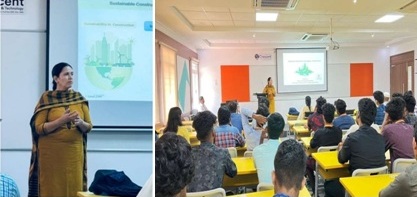
Figure VII (4.1) – 5 : Engaging Minds: A Workshop on Sustainable Technologies
The speaker highlighted about the sustainable development which is nothing but the development that meets the needs of the present, without compromising the ability of future generations to meet their own needs. In order to attain sustainability first the challenges faced by the industry must be studied. The challenges faced are cost, quality and time taken for the raw materials to be transformed to the final product.
The speaker further mentioned the importance of zero carbon and zero waste by the process of reduce, reuse, and recycle. Zero carbon emission can be divided into embodied and operational carbon. Embodied carbon emission is emitted during the construction and transportation process whereas operational carbon is emitted aftermath the construction.
To reduce the embodied carbon which contributes 49% of carbon the following steps are emphasized
- Energy efficient infrastructure
- Use low carbon alternatives
- Reuse materials
- Minimise waste
In order to understand the carbon emission, she briefed about LCA – Life Cycle Assessment which is a flow chart of carbon at different levels.
- Cradle to cradle – from manufacturing till recycle
- Cradle to grave – till demolition
- Cradle to handover – till building is hand overed
- To construction site – carbon emission taking place till construction
- To gate – carbon reduction at industry level
The steps that can be taken to initiate zero carbon and zero waste are by using supplementary cementitious materials, high performance material, utilization of waste for construction, extending the usable life of a structure. Further she briefed about fibre reinforced concrete, textile reinforced concrete and some new generation technology such as 3D printed buildings which can be implemented in future for sustainable development.
B.S. Abdur Rahman Crescent Institute of Science and Technology is committed to fostering a sustainable and energy-conscious community through various outreach programs focused on energy efficiency and clean energy solutions. In addition to educational initiatives, the institute actively participates in community service events, such as the recent tree plantation drive during N.S.S. Day celebrations. The N.S.S. unit planted 200 trees as part of the “Green Tamil Nadu” program, organized by the Tamil Nadu Government. This event, attended by over 300 volunteers and dignitaries including Chief Minister Thiru. M. K. Stalin, showcased the institute’s commitment to environmental stewardship. Such activities not only promote awareness about energy efficiency and clean energy but also engage the local community in practical actions that contribute to sustainability and ecological balance. Through these combined efforts, B.S. Abdur Rahman Crescent Institute aims to empower residents with knowledge and inspire collective action towards a greener future.
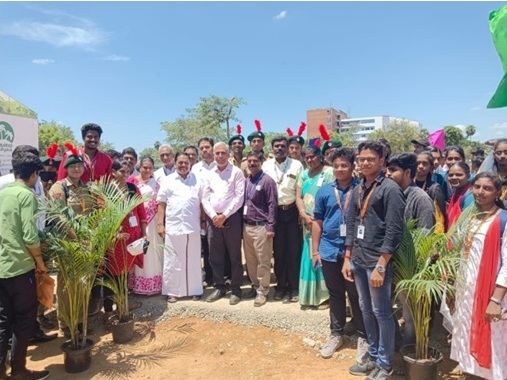
Figure VII (4.1) – 6 : Community Empowerment Through Tree Plantation Initiatives – BSACIST Students
B.S. Abdur Rahman Crescent Institute of Science and Technology actively participates in local community outreach aimed at promoting energy efficiency and clean energy practices. A notable initiative is the “MeriLiFE – Massive Tree Plantation Drive 2023,” which encompasses the theme “One Student – One Tree.” This program, organized by the All India Council for Technical Education (AICTE), encourages students to engage in tree planting as a means of fostering environmental stewardship and raising awareness about sustainable practices.
The tree plantation drive not only contributes to enhancing green cover but also serves as an educational opportunity for participants to learn about the significance of trees in reducing carbon footprints and improving air quality. The event saw enthusiastic participation from students and faculty, who gathered to plant trees and further the cause of sustainability. By combining the efforts of these outreach programs with hands-on activities like tree planting, the institute effectively promotes the importance of energy efficiency and clean energy within the community, encouraging a shift towards more sustainable living practices.

Figure VII (4.1) – 7 : MeriLiFE: Cultivating a Greener Future Through Student Engagement – One Student-One Tree
POLICY FOR ENERGY-EFFICIENT RENOVATION AND BUILDING
Issue: 04; Revised on 2023
| Policy Created on | July 2009 |
| 1st Revision amended on | IQAC Meeting held on 27th October 2017 |
| 2nd Revision amended on | IQAC Meeting held on 31st March 2021 |
| 3rd Revision amended on | IQAC Meeting held on 16th June 2023 |
Responsible Executive : Director (IQAC)
Responsible Office : Internal Quality Assurance Cell, Estate Office, and SDG Cell
Contacts : Registrar, Director (IQAC)
The B.S. Abdur Rahman Crescent Institute of Science and Technology is committed to ensuring that all renovations and new constructions on campus adhere to stringent energy efficiency standards. This policy aims to:
- Ensure universal access to affordable, reliable, modern energy services.
- Increase substantially the share of renewable energy in the global energy mix.
- Double the global rate of improvement in energy efficiency
- Enhance international cooperation to facilitate access to clean energy research and technology.
- Expand infrastructure and upgrade technology to supply modern and sustainable energy services, particularly in developing countries.
7.2 REASON FOR THIS POLICY
This policy is established to promote energy-efficient practices in renovating existing infrastructures and constructing new buildings. By adhering to energy efficiency standards, the Institute aims to reduce greenhouse gas emissions, lower operational costs, and contribute to the global efforts to combat climate change, which aligns with SDG 7 – Affordable and Clean Energy.
7.3 RESPONSIBILITIES
7.3.1 Policy Principles
The Institute shall implement the following principles to ensure compliance with energy efficiency standards:
- All renovations and new constructions must achieve recognised building rating systems such as EDGE, IGBC, and LEED.
- Sustainable design features, including using renewable energy sources, shall be integrated into all projects.
- An efficient waste management plan shall be established to minimize waste and promote recycling.
- Rainwater harvesting systems shall be implemented in all new buildings.
- Energy conservation shall be prioritized through the installation of energy-efficient appliances and equipment.
- Regular audits of energy consumption shall be conducted to identify areas for improvement.
- Use of low VOC (Volatile Organic Compounds) materials in construction and renovation to minimize harmful emissions.
- Adoption of eco-friendly housekeeping practices using biodegradable chemicals.
- Implementation of high reflective roofing materials and green roofs to reduce heat island effects.
- Encourage water-efficient landscaping and high-efficiency irrigation technology in new construction projects.
- Support R&D activities towards energy-efficient renovation and building.
- Enhance national/international cooperation to facilitate access to green building technology.
- Dissemination of Policy
- Awareness programs shall be conducted regularly for all stakeholders regarding energy-efficient practices.
- This policy shall be publicly accessible on the Institute’s website and updated as necessary.
7.3.3 Enforcement of Policy
- The Director (Planning and Development) and their team are responsible for monitoring compliance with this policy.
- Compliance shall be communicated to architects, design engineers, and construction workers involved in projects.
7.2.1 – ENERGY EFFICIENCY POLICY.pdf
POLICY FOR DIVESTMENT FROM CARBON-INTENSIVE ENERGY INDUSTRIES
Issue: 04; Revised on 2023
| Policy Created on | July 2009 |
| 1st Revision amended on | IQAC Meeting held on 27th October 2017 |
| 2nd Revision amended on | IQAC Meeting held on 31st March 2021 |
| 3rd Revision amended on | IQAC Meeting held on 16th June 2023 |
Responsible Executive: Director (IQAC)
Responsible Office: Internal Quality Assurance Cell, Estate Office, and SDG Cell
Contacts: Registrar, Director (IQAC)
The B.S. Abdur Rahman Crescent Institute of Science and Technology is committed to divesting from carbon-intensive energy industries, particularly coal and oil, to promote sustainable energy practices and contribute to the global efforts to combat climate change. This policy aims to:
- Ensure universal access to affordable, reliable, and modern energy services.
- Increase substantially the share of renewable energy in the global energy mix.
- Double the global rate of improvement in energy efficiency.
- Enhance international cooperation to facilitate access to clean energy research and technology.
- Promote investment in energy infrastructure and clean energy technology.
7.2 REASON FOR THIS POLICY
This policy is established to minimize the Institute’s carbon footprint by reducing investments in fossil fuels and promoting renewable energy sources. By divesting from carbon-intensive industries, the Institute aligns with the United Nations’ Sustainable Development Goals, particularly SDG 7: Affordable and Clean Energy, and supports the transition to a sustainable energy future.
7.3 RESPONSIBILITIES
7.3.1 Policy Principles
The Institute shall implement the following principles to ensure effective divestment from carbon-intensive energy industries:
- Conduct a comprehensive review of current investments to identify carbon-intensive assets.
- Gradually divest from all investments in coal and oil industries within a specified timeframe.
- Reallocate funds towards renewable energy projects and sustainable technologies.
- Collaborate with financial institutions that prioritize sustainable investment practices.
- Promote transparency in investment decisions and publicly report on divestment progress.
- Engage with stakeholders, including students and faculty, to raise awareness about the importance of divestment from fossil fuels.
- Support research and development initiatives focused on clean energy technologies.
7.3.2 Dissemination of Policy
- This policy shall be publicly accessible on the Institute’s website to ensure transparency.
- Awareness programs shall be conducted regularly for all stakeholders regarding the importance of divestment from carbon-intensive industries.
- Updates on divestment progress shall be communicated through newsletters and reports.
7.3.3 Enforcement of Policy
- The Director (Finance) and their team are responsible for monitoring compliance with this policy and reporting on divestment progress.
- Any breach of this policy may result in a review of investment strategies and potential disciplinary actions as prescribed by the Institute’s code of conduct.


